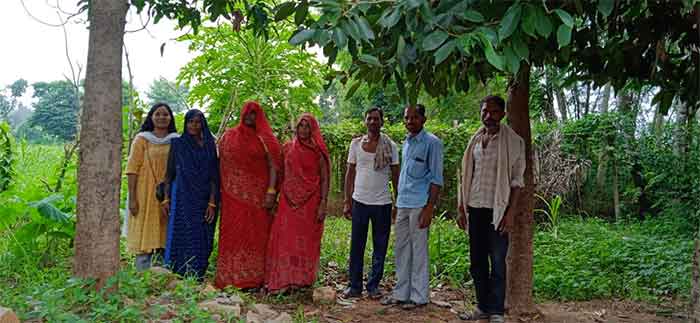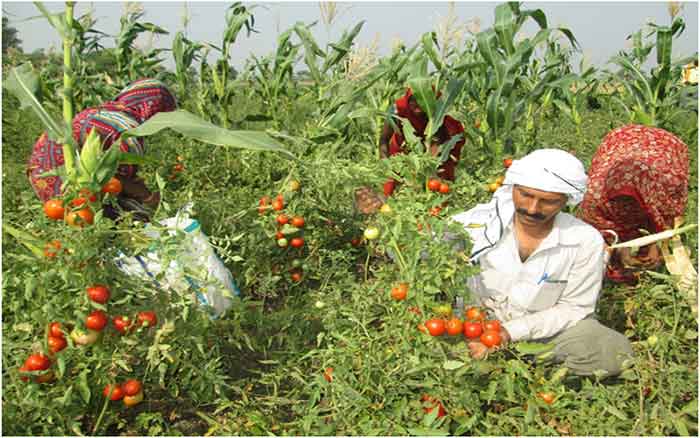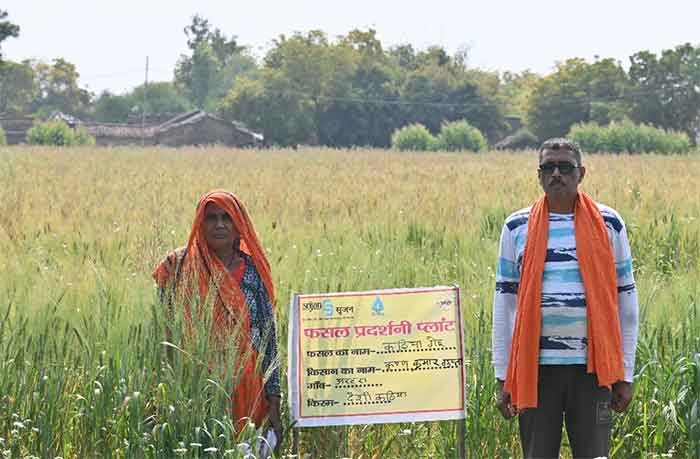
There have been several assertions on the part of the union government at high levels that natural farming will be promoted by it in a big way. While natural farming has been interpreted often in different ways, generally the meaning sought to be conveyed is that ecologically safe practices to produce healthy food free of harmful chemicals will be promoted while ecologically harmful inputs will be avoided or phased out. In times of climate change, another aspect of natural farming is to minimize fossil fuels and GHG emissions.
While the government has launched several schemes in this direction, these generally remain at low levels and no significant scaling up has been seen yet. One of these schemes is Parampragat Krishi Vikas Yojana. Expenditure on this scheme was Rs. 329 crore in 2018-19, Rs. 284 crore in 2019-20, Rs. 381 crore in 2020-21 while the revised estimate for 2021-22 was down to just Rs. 100 crore (one crore=10 million). This revised estimate incidentally was less than one-fourth of the original allocation (or budget estimate or BE).
The National Project on Soil Health and Fertility is also relevant in this context. The expenditure on this has come down. While Rs. 314 crore was spent on this national project in 2018-19, Rs. 159 crore was spent in 2019-20. This rose to Rs. 200 crore in 2020-21 but the revised estimate next year took a low plunge to just Rs. 100 crore. This revised estimate was less than one-third of the original allocation (BE).
The Scheme of Rainfed Area Development and Climate Change is obviously relevant in this context but unfortunately its budget has been going downhill all the way. Expenditure on this scheme was Rs. 216 crore in 2018-19 which went down to Rs. 187 crore and then to Rs. 128 crore in the next two years. The Revised Estimate in 2021-22 was down to Rs. 110 crore.
A question that needs to be raised is—if the government is really committed to natural farming, why is the government expenditure for all these schemes showing a declining trend?
Another important aspect of this issue is that the government has been taking important steps to promote GM (genetically modified) foods and crops. While India has been firmly committed to banning GM foods till recently, the government has initiated changes in regulations that, as pointed out by several critics, are likely to lead to more availability of imported GM foods. What is even worse, despite the fact that the technology of gene editing has been equated to that of GM crops, at scientific and legal levels, the government has gone ahead with introducing it which amounts to a backdoor entry for GM crops including, in all probability, GM food crops.
If we recall the very intense debates and big mobilizations that had taken place in the earlier contexts of attempts at introducing genetically modified versions first of brinjal and then of mustard, resulting in firm refusal to their introduction, it appears that the government is now pursuing the highly hazardous agenda of introducing GM foods and crops in a more shrewd and subtle way. However because of their very high risks for environment and health, the agenda of GM crops cannot co-exist with the agenda of natural farming. The government’s claims of taking forward natural farming are completely false if it is also at the same time pursing the agenda of GM crops.
At world level the technology of GM crops and foods is highly concentrated in the hands of a few giant multinational companies which are also involved in hundreds of serious legal cases relating to the serious harm already caused by them.
Prof. Pushpa M. Bhargava, Founder of the Centre for Cellular and Molecular Biology, was India’s most renowned authority on this issue and he was also appointed by the Supreme Court of India as an observer in the Genetic Engineering Appraisal Committee. A little before his death he summarized the state of the debate on this issue in these words,
“ There are over 500 research publications by scientists of indisputable integrity who have no conflict of interest, that establish harmful effects of GM crops on human, animal and plant health and on environment and biodiversity. For example, a recent paper by Indian scientists showed that Bt gene in both cotton and brinjal leads to inhibition of growth and development of the plant. On the other hand, virtually every paper supporting GM crops is by scientists who have a declared conflict of interest or whose credibility and integrity can be doubted.”
Earlier in another article titled Food Without Choice (The Tribune) Prof. Pushpa Bhargava had drawn attention to the ‘attempt by a small but powerful minority to propagate genetically modified crops to serve their interests and those of multinational corporations (read the US), the bureaucracy, the political set-up and a few unprincipled and unethical scientists and technologists who can be used as tools.’ Further he warned that the ultimate aim of this attempt in India, led by multinational companies, is to take over Indian agriculture and hence food production.
If the government thinks that it will promote natural farming along with GM crops, then this is mutually contradictory and hence not realizable. As the group of eminent scientists organized under the Independent Science Panel has stated very clearly, “GM crops have failed to deliver the promised benefits and are posing escalating problems on the farm. Transgenic contamination is now widely acknowledged to be unavoidable, and hence there can be co-existence of GM and non-GM agriculture.”
In this and several other contexts the government has shown itself to be guided more by the interests of big agribusiness corporations, domestic and foreign. In the case of edible oils, the government’s promotion of palm oil tree monocultures will be at the cost of forest and farm biodiversity in ecologically sensitive areas.
Hence the government’s claims of being committed to natural farming have to be taken with not a pinch but a bowlful of salt.
Bharat Dogra is Honorary Convener, Campaign to Save Earth Now. His recent books include A Day in 2071, Man over Machine and Planet in Peril.
















































